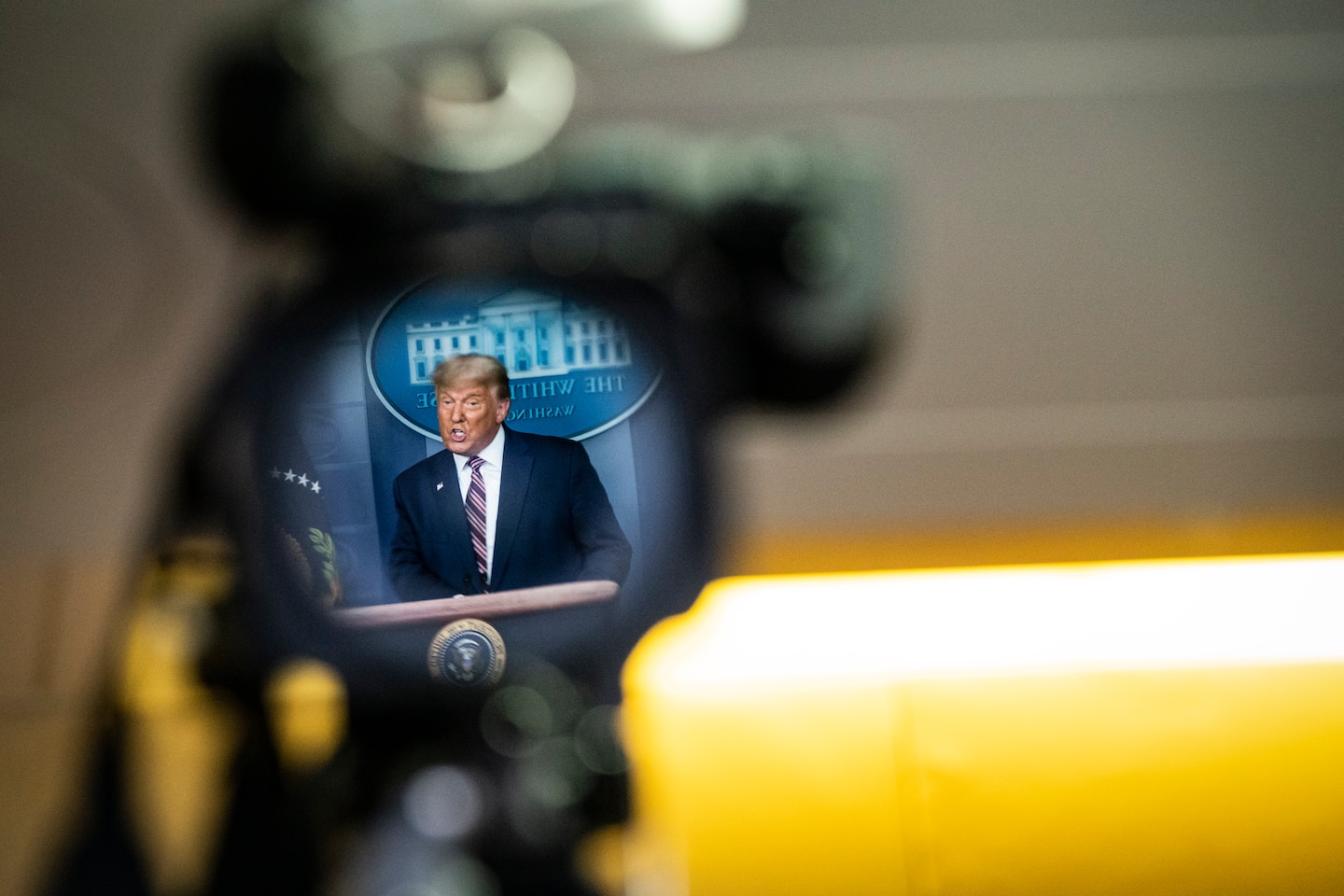The media had a role to play in the rise of Trump. It’s time to hold ourselves accountable.

In his inaugural address, Biden spoke about “a rise of political extremism, white supremacy, domestic terrorism that we must confront and we will defeat.” The laudable frankness about the threat of white supremacy surprised me, but I wish I could share his confidence about confronting and defeating it.
Since the Capitol siege of Jan. 6, federal and local officials have been scrambling to fortify Washington and its institutions against the threat of white supremacy and violence, but one national institution remains painfully vulnerable: the mainstream media.
The breaches to our Fourth Estate came long before Jan. 6, of course. From the moment Trump entered the 2016 race, endless oxygen was given to his racism and lies. White supremacists were deemed worthy of profiles noting their haircuts and wardrobes or allowed NPR airtime to rank the intelligence of the races. The breaches continued as ex-Trump officials were allowed to profit from distorting the truth to the American people, through TV analyst spots, book deals and Harvard fellowships.
Our media ushered all this through the door, under the aegis of “balance” and “presenting both sides” — as if racism and white supremacy were theoretical ideas to be debated, not life-threatening forces to be defeated. Never would I have imagined that I would say Biden’s stance on white supremacy is more progressive than the media’s. But here we are.
From the start, many non-White journalists grasped the threat that recognizing and calling out white supremacy was a life-or-death matter. And many paid a price for it. Black on-air commentators were literally laughed at by White counterparts for sounding the alarm. Journalist Jemele Hill was reprimanded by ESPN after calling Trump a white supremacist.
It took White blood being spilled, and elite lawmakers being threatened, for other sectors to confront the need to forcefully guard against extremism. In the wake of the Capitol insurrection, which left five dead, corporations pulled support from GOP politicians who supported the assault. Several Capitol officials resigned. Twitter kicked Trump off its platform, and Apple and Google removed Parler, which has increasingly become a haven for extremism, from their app stores.
But the media still seems unwilling or unable to reform itself. There have been no major efforts as an industry to systematically examine the role we played in America’s journey to the brink.
Just this week, the New York Times devoted a podcast episode to the “feelings” of Trump supporters. Barely a week after the siege, Politico came under fire for allowing right-wing personality Ben Shapiro to guest-write its popular Playbook newsletter, despite his history of racist and Islamophobic statements such as this one: “Israelis like to build. Arabs like to bomb crap and live in open sewage.”
Politico’s editors defended platforming Shapiro by putting on the rusty armor of both-sidesism, noting they had published MSNBC’s Chris Hayes as a voice from the left. Politico editor Matt Kaminski also said, “Mischief making has always been a part of Politico’s secret sauce.” After the past four years, it was startling to see a comment so in the spirit of CBS chairman Leslie Moonves’s mercenary 2016 assessment that Trump’s campaign “may not be good for America, but it’s damn good for CBS.”
Has so little been learned? Media coddling of those who attack racial and religious minorities is not “mischief making.” It is willful moral malpractice. I am reminded that in this country White people once gathered to watch the public lynching of Black people and even made souvenir postcards of the events. I am reminded that, in America, White racism against minorities is titillating, not disqualifying — because it is profitable.
This is why I worry America will find itself in this place again.
And this is why the push for newsroom diversity and anti-racist coverage remains so important. For many of us, the empowerment of non-White voices in a very White and male industry was never just about numbers, promotions or individual opportunities. It was because we knew that blind spots and denialism about the dark forces in this country would cause suffering.
The Trump years are over, but the Fourth Estate cannot rest in complacency. For America to endure as a multi-ethnic democracy, the empowerment of Black, Latinx and other marginalized people in the media will be essential. Uncompromising anti-racism is not a luxury. It is a democratic necessity — and it’s time the media realized that.
Read more:






